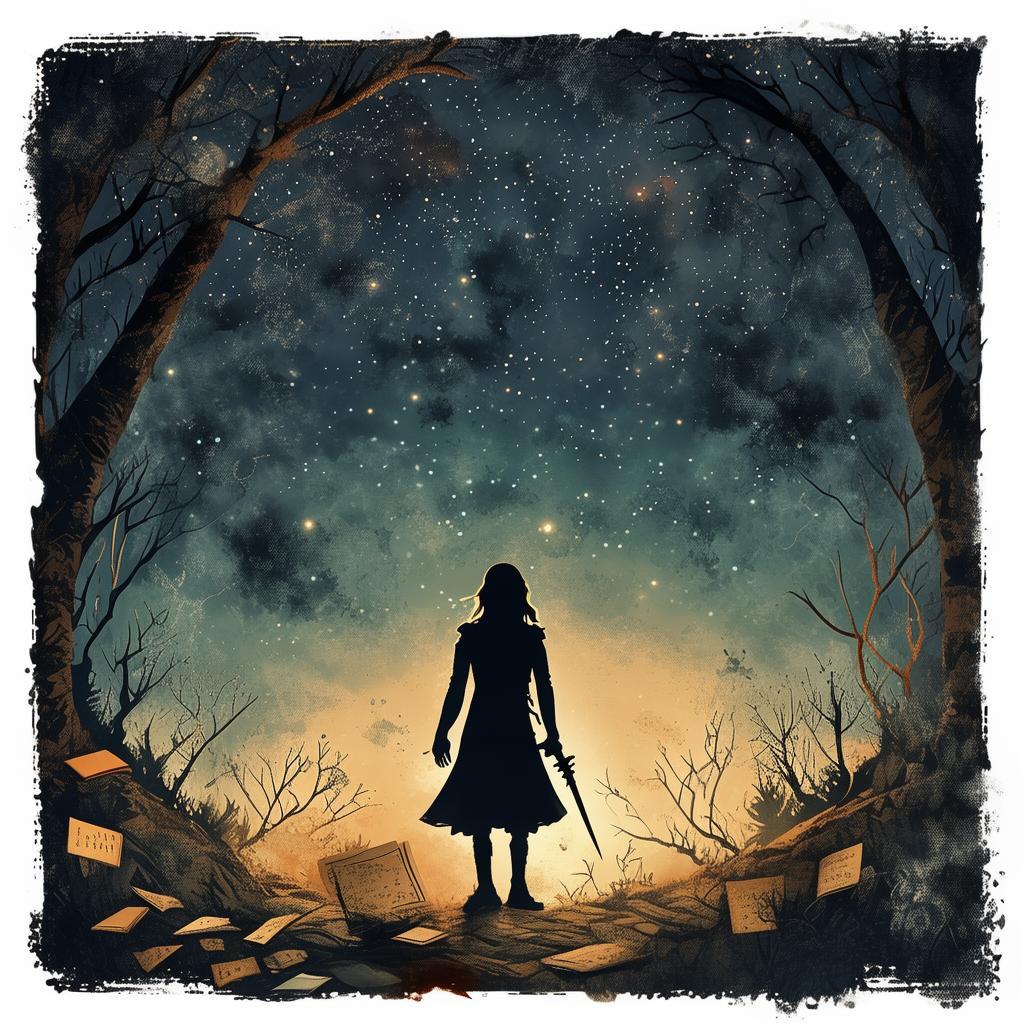The Symphony of Shadows: A Beethovenian Paradox
The clock tower of Vienna tolled midnight, its chimes echoing through the empty streets. The city was asleep, but not the dreams within it. In a small, dimly lit room, young composer Elara stood before her piano, her fingers dancing over the keys as she played a haunting melody. It was a piece she had composed in the solitude of the night, inspired by the very essence of Beethoven's spirit.
Elara had always felt a connection to the great composer, as if his music was a bridge to a world beyond her own. She had spent years studying his works, trying to understand the emotion and complexity that seemed to flow from his notes. But tonight, something different had happened. As she played, she felt a strange pull, as if the music was trying to communicate with her.
The melody transformed into a haunting, discordant symphony, and Elara's eyes widened in shock. The notes became more intense, more powerful, until she could no longer distinguish between the music and the reality around her. She saw visions of a world where Beethoven's music was not just a form of art, but a force that could shape the very fabric of existence.
In that world, classical music was a living entity, a sentient force that could influence the course of history. Elara realized that she had stumbled upon a hidden symphony, one that was not part of any known composition, but a piece that could alter the course of the classical world.
The visions continued, and with them came a warning. The symphony was incomplete, and if it were to be played in its entirety, it would unravel the very fabric of reality. Elara knew she had to find the missing pieces, but she also understood the gravity of her mission. The symphony was a paradox, a creation that could bring about both harmony and chaos.
Determined to save the classical world, Elara set out on a journey that would take her through parallel realities, each more surreal than the last. She encountered beings who were both real and imagined, characters from Beethoven's life and works, and even the composer himself.
As she traveled, Elara discovered that the missing pieces of the symphony were scattered throughout time and space. Some were hidden in the pages of old manuscripts, others in the memories of aging musicians, and still others in the dreams of the sleeping city. Each piece held a piece of the puzzle, a clue to the symphony's true purpose.
Elara's quest was not without its challenges. She faced betrayal, deception, and even the threat of death. But her passion for Beethoven's music and her unwavering belief in the symphony's power kept her going. She knew that the symphony was not just a musical work, but a testament to the indomitable spirit of creativity and the power of love.
In the end, Elara found the final piece of the symphony in the attic of an old, abandoned concert hall. The room was filled with dust and cobwebs, and the air was thick with the scent of decay. But there, on a dusty piano, was the final piece of the puzzle.

With trembling hands, Elara played the last note. The room was filled with a strange, otherworldly light, and the symphony came to life. The music was powerful, transcending time and space, and Elara felt its effects. The classical world began to change, the discordant notes being replaced by a harmonious melody.
Elara knew that her mission was complete. The symphony had been played, and the classical world was safe. But she also knew that the journey had changed her. She had become a part of something greater than herself, a guardian of the classical world.
As the light faded and the symphony ended, Elara looked around the concert hall. The dust had settled, and the air was fresh and clean. She had saved the classical world, but she had also discovered something deeper within herself. The spirit of Beethoven lived on, not just in his music, but in the hearts of those who loved it.
Elara left the concert hall, her heart full of gratitude and wonder. She had faced the impossible, and she had won. The symphony of shadows had been a paradox, but it had also been a beacon of hope. And in the end, it was the love of music that had saved the world.
✨ Original Statement ✨
All articles published on this website (including but not limited to text, images, videos, and other content) are original or authorized for reposting and are protected by relevant laws. Without the explicit written permission of this website, no individual or organization may copy, modify, repost, or use the content for commercial purposes.
If you need to quote or cooperate, please contact this site for authorization. We reserve the right to pursue legal responsibility for any unauthorized use.
Hereby declared.









